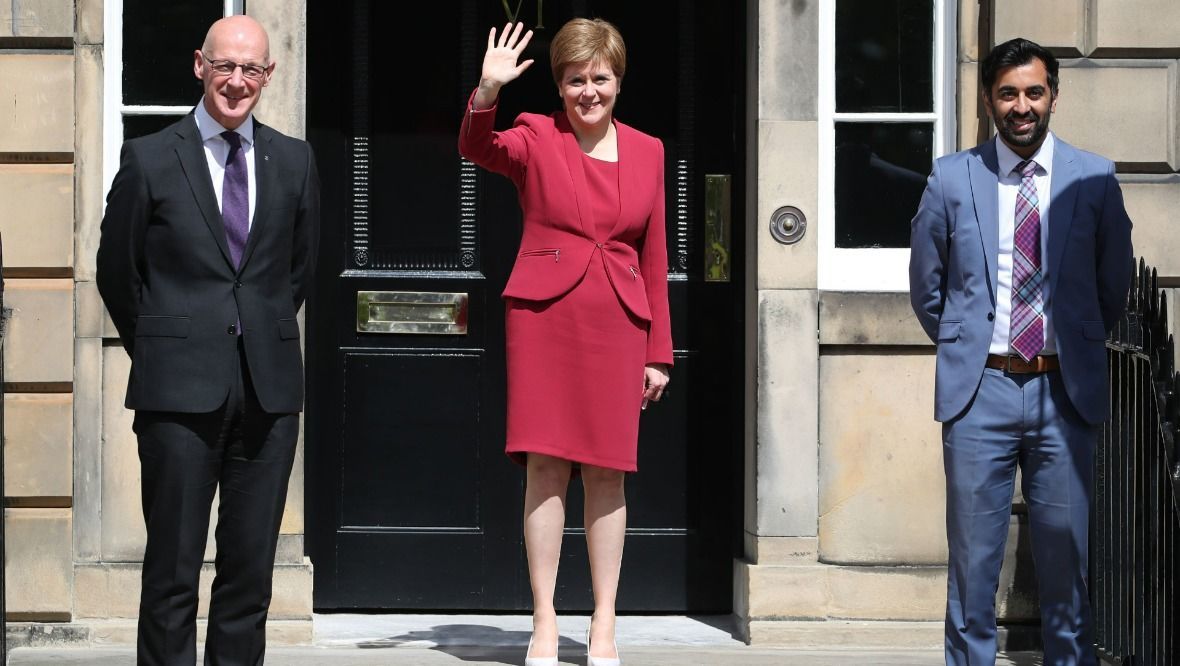The Scottish Government wants its emergency coronavirus powers to become permanent – including the ability to order schools to close, impose lockdowns and operate virtual courts.
Ministers are considering changing the law to permanently allow them to release prisoners early or permit a wider range of healthcare professionals to give vaccinations.
They are seeking the public’s views on removing the planned expiry date for many of the temporary measures, with Deputy First Minister John Swinney arguing that some of the changes have had a “demonstrable benefit to the people of Scotland”.
The majority of the government’s current powers introduced during the pandemic are due to elapse in March 2022 although they can be extended by six months with Holyrood’s backing.
But the consultation published by the government wants to make many permanently available, claiming it would ensure “ministers can respond effectively and rapidly to any future threats to public health in Scotland”.
It adds: “The proposal is, therefore, to give the Scottish ministers the same powers to protect the people of Scotland from any incidence or spread of infection or contamination which presents, or could present, significant harm to human health in Scotland, not just Covid.”
In addition to being able to impose future lockdowns and restrict gatherings, ministers would also be able to order school closures “during the remainder of the pandemic” or for any future outbreak of an infectious disease, so long as they believe it is “necessary and proportionate”, and the chief medical officer has been consulted.
Among the plans for the justice system are calls for continued powers to permit the early release of prisoners and allowing people to avoid attending court in person by taking part remotely.
The government argues it would be “prudent to extend the powers” established towards the start of the pandemic so ministers can choose “to order the release of groups of prisoners” to alleviate pressure on the prison system.
Towards the start of the pandemic, 348 prisoners were released up to 90 days early from their sentences, although inmates convicted of domestic violence, harassment or Covid-related offences were automatically excluded.
Prison governors were also able to veto the early release of specific inmates if there was evidence they could be a risk to someone.
The consultation also suggests a permanent shift to more digital options, including the remote registration of deaths or still births, council meetings and electronic court documents.
Swinney, the Covid recovery secretary, said: “We want to ensure we remove measures no longer needed in order to respond to the pandemic whilst keeping those where there is demonstrable benefit to the people of Scotland.
“This is an opportunity to maintain changes that have been welcomed by people who now don’t want to lose transformations that have been innovative, beneficial, and increased access to services.
“While the pandemic has been incredibly disruptive, its urgency has forced the public services we rely on to adapt and continue and still deliver, driving the pace of digital adoption, and in some cases more efficient ways of working.
“As we enter the recovery phase, we now have a unique opportunity to reimagine how health and social care, learning and justice services can be designed and delivered around the lives and needs of the people who use them.
“I invite everyone to have their say on what this future should look like to support a fair, safe and secure recovery. Your views on these proposals will inform any future legislation to be brought forward on these topics for full scrutiny and debate in Parliament.
“We remain committed to expiring or suspending any existing provisions that are no longer necessary, and will continue to report to Parliament every two months on the use of any temporary powers.”
The public will have 12 weeks until the consultation period ends on November 9 to share their views.
Follow STV News on WhatsApp
Scan the QR code on your mobile device for all the latest news from around the country


 PA Ready
PA Ready
























